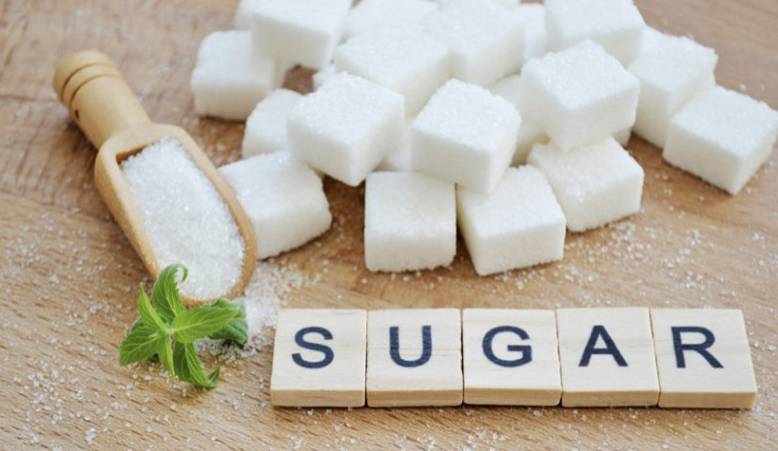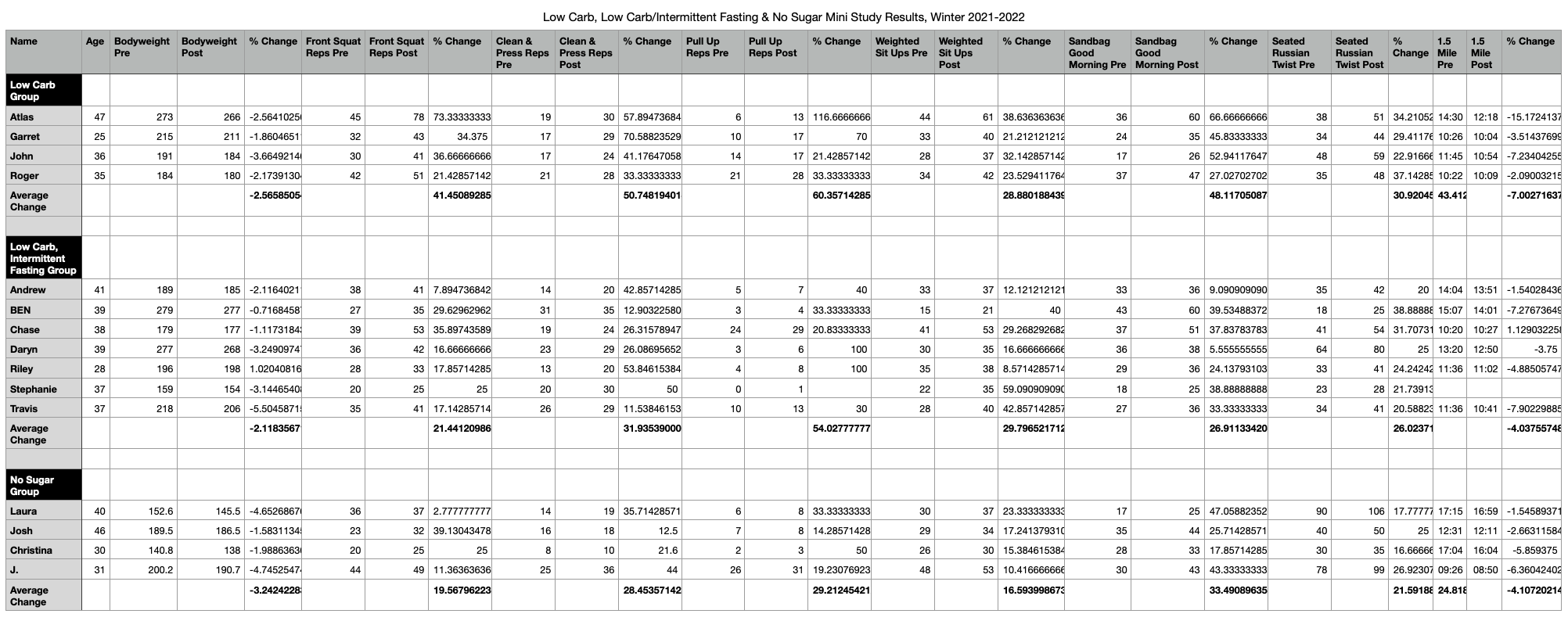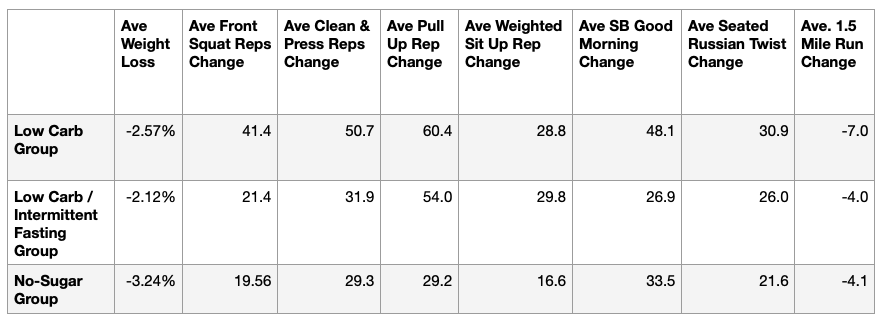By Rob Shaul
BLUF
Remote MTI Lab Rats who cut all corn syrup, refined sugar and fruit from their diet matched the weight loss of lab rats who cut most carbs (including sugar and fruit), and Intermittent Fasting lab rats (18 hours/day) who cut all sugar, most carbs and fasted 18 hours/day.
During this 3.5 week mini study, all groups completed the same fitness training program.
While the lab rats who only cut sugar lost as much weight as the No Carb and Intermittent Fasting lab rats, they lagged behind both groups in assessed training cycle performance gains.
A significant caveat to these results … because of lab rat nutrition, there were no more than 7 lab rats in each group and this small sample size is not significantly significant.
Average Weight Loss:
- Low Carb Group: 2.5%
- Low Carb + Intermittent Fasting Group: 2.11%
- No-Sugar/Fruit Group: 3.24%
Background
A previous Mini Study this Winter found that lab rats on a Low Carb, Intermittent Fasting diet did not lose significantly more weight than athletes on a Low Carb diet. The performance gains for both groups was similar. We concluded that there was no weight-loss reason to intermittent fast.
This study wanted to test the weight loss and performance effects of simply cutting all refined sugar and fruit from the diet.
MTI’s Nutritional Guidelines: Protein first, no sugar, no bread, pasta, grain, no fruit, only vegetables that grow above the ground. All the lab rats in this previous mini study followed a meal plan closely aligned with these guidelines.
The difference between these guidelines and the diet for the lab rats in this Mini Study is these lab rats did not restrict bread, pasta, rice, or below the ground vegetables (potatoes, etc.). They just had to cut sugar and fruit. In the previous Mini Study, the Low Carb, and the Low Carb / Intermittent Fasting Lab Rats cut refined sugar, fruit, plus grains, potatoes, rice, legumes, etc.
All three groups completed the exact same training plan. The training plan was multi-modal and included assessed strength, a 1.5 mile run assessment, and complimentary work capacity/chassis integrity grinds.
Going into this Mini Study, I had two research questions:
-
- Would there be any significant weight Loss differences between the No Sugar lab rats in this study, and the Low Carb, and Low Carb/Internittent Fasting groups from the previous study? Essentially, we were asking can an athlete lose as much weight just cutting all sugar and still be able to eat grains, potatoes, etc.?
- Would there be any significant performance gain differences between the No Sugar lab rats in this study, and the Low Carb, and Low Carb/Internittent Fasting groups from the previous study? Essentially, are there negative performance improvement impacts from eating wheat, grains, rice, potatoes, etc?
Results/Discussion
See the chartbelow for all 3 group full results:
Below is an easier to read chart with just the average change results by group:
Here you’ll see the No-Sugar Group’s weight loss was slightly more than the both the Low Carb, and Low Carb / Intermittent Fasting Group. On the surface, this would seem to suggest athletes can achieve comparable weight loss from simply cutting all sugar and fruit from their diets, and not have to take the next step and cut wheat, grains, legumes, below-the-ground vegetables (potatoes), etc.
However, the it would appear that the lab rats who cut grains, legumes, and below the ground vegetables from their diets has better performance gains in 5 of the 7 assessments. The most recent No-Sugar lab rats had as strong or stronger improvements in the Sandbag Good Mornings and 1.5 mile run, but lagged behind in the other assessments.
But again …. because the total number of lab rats was so small, these results are not statistically significant. But can be food for though for athletes wanting to cut carbs, but not bread.
Though not statistically significant, these results tend to indicate that simply cutting all refined sugar and fruit can get you a long way towards eating “clean” in terms of fat/weight loss.
Next Steps
Ideally we’d re-conduct this study, but with more lab rats simply to get more data points. In addition to these three groups, it would be instructive to include a 4th group, which completed the same training, but had no dietary restrictions – i.e. they could keep eating sugar.
How much weight would they lose just from following the training? Would their performance gains at the end of the study be significantly less than the lab rats who did cut sugar?
Questions? Email coach@mtntactical.com
Comments? Please enter your comment below.
You Might Also Like MTI’s Big24 Strength Training Plan


